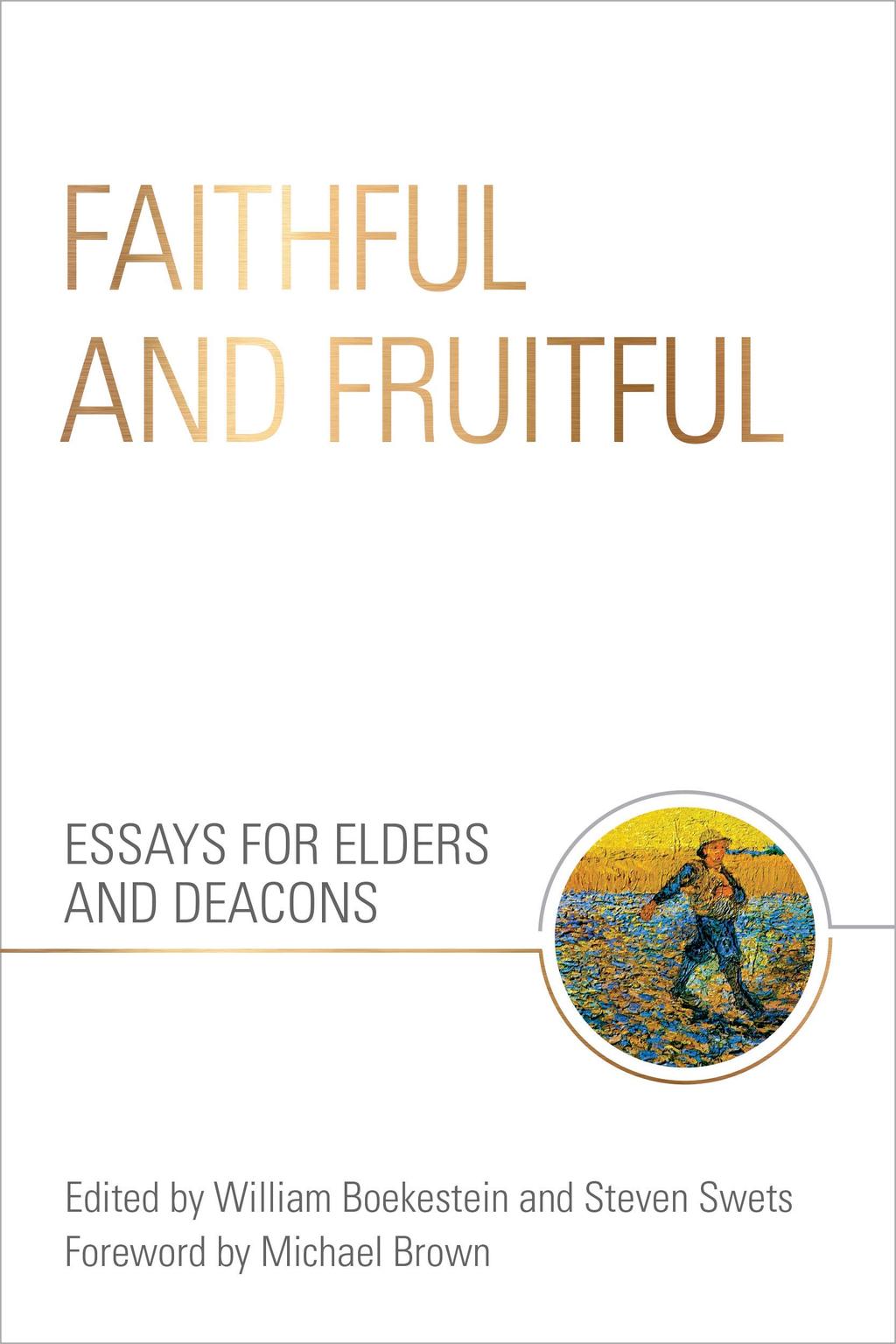
William Boekestein and Steven Swets, Eds.
Reviewed by: J. V. Fesko
Faithful and Fruitful: Essays for Elders and Deacons, edited by William Boekestein and Steven Swets. Reformed Fellowship, 2019. Paperback, 328 pages, $16.99. Reviewed by OP professor J. V. Fesko.
There is an ocean of theological literature on a host of topics, from the doctrines of God to last things, and everything in between. Nevertheless, as plentiful and vast as this body of water is, there are some dry spots on the landscape when it comes to books specifically written to assist and instruct elders and deacons in their sacred task of serving Christ’s church. Thankfully, there is another contribution to this often-overlooked genre of theological literature. In a follow-up volume to Reformed Fellowship’s 2007 Called to Serve: Essays for Elders and Deacons, editors William Boekestein and Steven Swets have published Faithful and Fruitful: Essays for Elders and Deacons.
The book contains twenty chapters on a wide range of practical topics including: training church officers, prayer, hospitality, managing one’s household, catechesis, avoiding burnout, clerking, serving on a search committee, evangelism, and missions. All the chapters offer sage biblical advice and counsel, though two standouts are Richard Anjema’s contribution on ministering to the sick and dying and Jonathan Cruse’s essay on congregational singing. Many congregations struggle with singing and thus Cruse’s advice is an excellent booster shot to help elders improve this aspect of congregational life and worship.
Among the book’s strengths are the practical nature of the chapters and the solid biblical and exegetical engagement that inform each essay. Given that the contributors come from both the Presbyterian and Continental traditions, the book ably serves the needs of both. Other strengths include the fact that the book covers areas of weakness in many Reformed and Presbyterian churches. As mentioned above, congregational singing is one such weakness. So is personal evangelism. Scott Clark’s essay captures our fear of witnessing to unbelievers but points us to three things that might lessen our anxieties: that Christian witnessing is simple, steadfast, and spiritual (247). First, when witnessing, we should keep things simple and not allow the unbeliever to distract us from our task by posing multiple questions (251–52). Second, we should remain steadfast and undaunted in our witness, even in the face of opposition. Despite criticism, we can tell others what Christ has done for us, and in so doing we confess Christ (256). Third, the Spirit of God is ultimately the one who must do the heavy lifting in our witnessing—only he can remove hearts of stone and replace them with hearts of flesh (260).
Sessions, consistories, and deacons would do well to read both books, Called to Serve and Faithful and Fruitful. They might even use the books for a session study so that they better understand their sacred work. And they should also keep the two books nearby as a resource for regular consultation.
Faithful and Fruitful is a welcome book and will undoubtedly prove to be useful for elders and deacons.
June 15, 2025
June 08, 2025
June 01, 2025
Anxiety: Finding the Better Story
May 25, 2025
April 27, 2025
The Devoted Mind: Seeking God’s Face in a World of Distraction
April 20, 2025
April 13, 2025
© 2025 The Orthodox Presbyterian Church